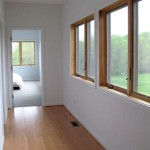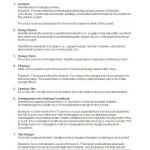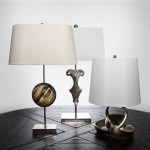Interior Door Thickness: A Comprehensive Guide
Choosing the right interior door thickness is an important consideration during any home renovation or construction project. The thickness of an interior door plays a significant role in its structural integrity, sound insulation, privacy, and overall aesthetic appeal. This article provides a comprehensive guide to understanding interior door thickness, its implications, and factors to consider when making your selection.
Understanding Interior Door Thickness
Interior door thickness is measured in inches and generally ranges from 1 3/8 inches to 1 3/4 inches. The thickness of an interior door is crucial for its structural stability and performance. Thicker doors are typically stronger, provide better sound insulation, and offer enhanced privacy. They are also more durable and can withstand heavier use.
Key Factors to Consider When Choosing Interior Door Thickness
Several essential factors influence your decision on interior door thickness:
1. Purpose and Location
The intended purpose and location of the door significantly impact the required thickness. For example, a bedroom door may require a higher level of privacy and noise reduction than a closet door. Doors leading to high-traffic areas, such as bathrooms or kitchens, may benefit from a thicker construction to withstand frequent use.
2. Sound Insulation
If noise reduction is a priority, a thicker door will provide better sound insulation. The additional material and construction offer greater resistance to sound transmission. This is particularly important in areas where you want to minimize noise, such as home offices, bedrooms, or media rooms.
3. Privacy
Privacy is another essential factor to consider. Thicker doors provide a greater sense of privacy by making it more difficult to hear sounds from the other side. Solid core doors, which are commonly thicker than hollow core doors, offer enhanced privacy as they are more resistant to sound transmission.
4. Aesthetics
While thickness is often considered in terms of functionality, it can also impact the aesthetics of your interior doors. Thicker doors can create a more substantial and elegant look, especially when paired with intricate moldings or decorative finishes. However, it's essential to consider the overall style and design of your home and ensure that the chosen thickness complements the existing elements.
Common Interior Door Thicknesses and Their Applications
Here is a breakdown of common interior door thicknesses and their typical applications:
1. 1 3/8-Inch Doors
These are the most common thickness found in residential homes. They provide adequate structural stability and sound insulation for most interior applications. They are also readily available and offer a wide range of styles and finishes.
2. 1 3/4-Inch Doors
These thicker doors offer enhanced strength, sound insulation, and privacy. They are typically preferred for high-traffic areas, bedrooms, and rooms where noise reduction is crucial. They also provide a more substantial feel and aesthetic.
3. Engineered Doors
Engineered doors combine different materials, such as wood, core, and veneer, to achieve specific properties. They are often thicker than standard solid core doors and offer increased sound insulation, durability, and stability. They are a suitable option for high-traffic areas, noise-sensitive spaces, and applications where strength and longevity are paramount.
Conclusion
Choosing the right interior door thickness is essential for ensuring structural integrity, sound insulation, privacy, and aesthetics. By carefully considering your needs, budget, and the intended purpose of the door, you can make a well-informed decision that meets your requirements and enhances your home's functionality and appeal.

Important Interior Door Dimensions Specifications And Terms
Standard Interior Door Sizes Theaterseat Blog

Standard Door Width Important Measurements To Know

Mmi Door 28 In X 80 Smooth Carrara Right Hand Solid Core Primed Composite Single Prehung Interior 1 3 4 Thick Z0364279r The Home Depot

Cp Teak Wood Front Interior Door Thickness 35 Mm Size Dimension 7 X 3 5 At Rs 1250 Square Feet In New Delhi

Mmi Door 24 In X 80 Smooth Caiman Right Hand Solid Core Primed Composite Single Prehung Interior 1 3 4 Thick Z0364262r The Home Depot

Internal Door Size Guide Metric To Imperial Conversions
What Is The Standard Width Of An Interior Door Quora

Discover The Contemporary Modern Interior Door By Trimlite Quality Single Entry Constructed With Wood Paint Grade

2 0 W X 6 8 H 1 3 Thick Hollow Core Smooth Raised Panel Interior Door Slab Detering








